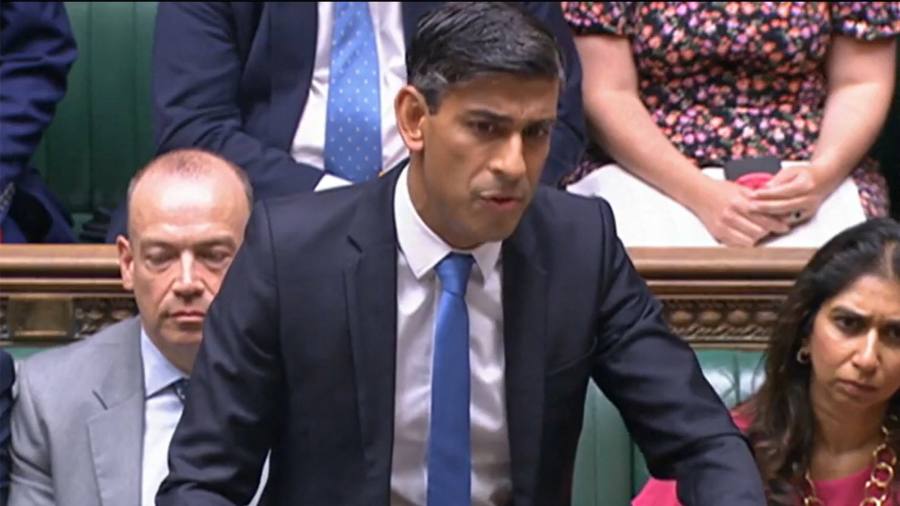
Receive free UK politics updates
We’ll send you a myFT Daily Digest email rounding up the latest UK politics news every morning.
Rishi Sunak, UK prime minister, on Wednesday insisted that only 1 per cent of schools had been affected by the crisis over crumbling lightweight concrete structures, as Labour stepped up its attack on the issue.
Labour leader Sir Keir Starmer accused Sunak of imposing cuts to state school budgets “for other families to endure” — a reference to the PM’s choice of private schools for his children.
In heated House of Commons exchanges, Starmer claimed safety problems in schools were the “consequence of 13 years of cuts” under a Conservative government, declaring: “The cowboys are running the country.”
Just minutes before prime minister’s question time, the government published a list of 147 primary and secondary schools in England confirmed to have buildings made with reinforced autoclaved aerated concrete, or Raac, a form of lightweight concrete that is prone to collapse.
The start of term had been delayed at 19 of the schools, the Department for Education said, and Sunak said the government was moving “decisively” to fix the problem.
Pupils at 104 schools continue to receive face-to-face education on site or nearby, with those at four schools receiving fully remote teaching. Those at 20 others have a mix of face-to-face and remote arrangements.
A further nine schools initially thought to have buildings made with Raac were found to have none and their names were not included in the list. About 5 per cent of councils and academy trusts have not responded to requests to fill in surveys.
Sunak claimed that Starmer had not raised concerns about the concrete issue previously and accused his Labour opponent of “political opportunism”.
But the Labour leader drew attention to the confirmation by schools minister Nick Gibb this week that his department had asked for money to rebuild 200 schools a year but Sunak had provided funding for only 50.
“Why does literally everyone else say it’s his fault?” said Starmer, who has tried to use the issue to claim that Sunak and fellow ministers are indifferent to the issues facing ordinary families.
He added that education secretary Gillian Keegan’s DfE offices had recently been refurbished at a cost of £34mn. Keegan has said she wasn’t involved in the decision.
Starmer also criticised the Tory party for halting the “Building Schools for the Future” programme after it came to power in the 2010 general election. “This crisis is the inevitable result of 13 years of cutting corners,” he said.
Sunak said the vast majority of the 22,000 schools in England were not affected by the concrete concerns, suggesting that only around 1 per cent of premises may be affected.
In those cases, schools were being assigned a government caseworker, he said — pointing out that mitigations would take only days or weeks. In the majority of cases children would attend school as normal, he added.
“I know how concerned parents, teachers and children are,” Sunak said. “The government is doing everything it can to fix this quickly and minimise the disruption to children’s education.”
Sunak said the government had recently increased funding for school maintenance and rebuilding, which would average £2.6bn a year — a 20 per cent rise — over this parliament.